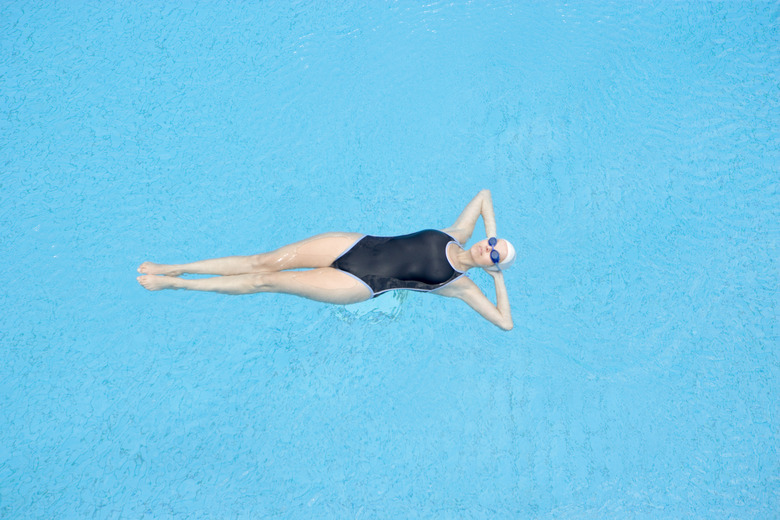Can You Add Too Much Floc To Pool Water?
Although the sight of a swimming pool may make you think of rest and relaxation, these aquatic recreation areas take plenty of maintenance and upkeep. Without proper care, swimming pool water can turn cloudy and change color. Flocculation refers to suspended particles in the water that give it a murky appearance. Flocculants are substances that help clear the cloudiness and restore the clarity to your swimming pool water. You can use too much floc, however.
Flocculation
A number of factors contribute to flocculation. This cloudiness occurs when small particles in the water begin attaching to one another, forming larger particles that detach more rapidly from their suspended state. The pH level of your water, as well as the temperature of your pool, can affect the flocculation rate. A flocculant, frequently referred to as a water clarifier, will help reduce the cloudiness.
Flocculant
Flocculants are pool treatments that contain polymers, usually in the form of solid blocks or powders. Flocculants work by binding with the particles causing the cloudiness, making them large enough to be caught in the filtration system and leaving the water clear.
Excessive Amount
The amount of flocculant your pool requires depends on several factors, such as the volume of water, pH balance, temperature of the pool and your particular brand of flocculant. Using more than the recommended amount can make your pool cloudier, rather than clearer. Properly working filtration systems are important to keeping your pool water clear. If you find that you need to use your flocculant more frequently than the instructions recommend, check to see whether your filters are working correctly. Lowering the water temperature can also help cut back on the amount of flocculant required to keep your pool water clear.
Precautions
As with any swimming pool chemical, follow the label instructions when applying flocculants and clarifiers to your pool water. Using some of these substances in excess, or applying them at the same time you use other chemicals, can result in harsh reactions to the surface of your pool components and your skin.
